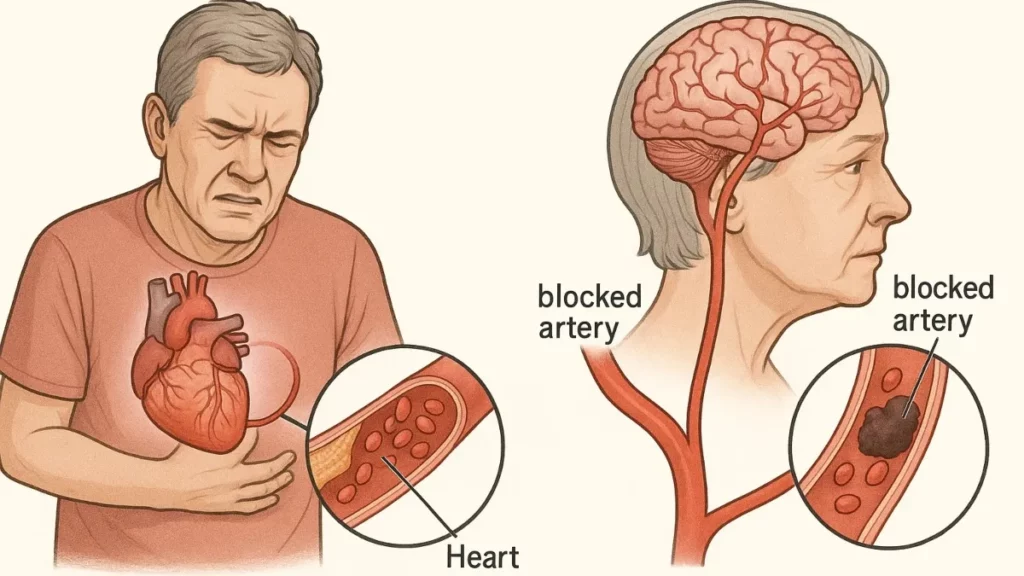
What Is a Heart Attack?
The connection between heart attack and stroke is more than coincidence—these two deadly conditions share common risk factors and symptoms. Recognising the warning signs and acting quickly can save lives. In this article, a medical expert explains how both are linked through vascular health.
Heart attacks and strokes are two of the most serious medical emergencies, yet many people don’t recognise the early warning signs. These emergencies can occur anywhere and at any time and to anyone. While they affect different organs, both are caused by problems in the blood vessels and require immediate treatment.
A heart attack, or myocardial infarction, happens when blood flow to the heart is blocked. This happens due to a blood clot or a buildup of fat in the arteries. This cuts off the oxygen supply to the heart muscle, causing damage. The symptoms of a heart attack are chest pain, breathing difficulty, pain in the arm, jaw, or back, nausea or cold sweats, dizziness, light-headedness, or one can even collapse. The most common causes include high cholesterol, high blood pressure, smoking, obesity, diabetes, and a sedentary lifestyle. Family history and stress also play a role.
A stroke happens when the blood supply to part of the brain is interrupted or reduced, causing brain cells to die. It may be because of a clot (ischaemic stroke) or a burst blood vessel (haemorrhagic stroke).
Decoding the connection between heart attack and stroke
According to Dr Bipeenchandra Bhamre, Consultant Cardiac Surgeon at Sir H. N. Reliance Foundation Hospital and Research Centre in Mumbai, heart attacks and strokes have common risk factors such as hypertension, high cholesterol, and atherosclerosis (narrowing of arteries). People who have had a heart attack can be at risk of a stroke, and vice versa. Both involve blockages or bleeding in vital blood vessels, one in the heart, the other in the brain. It is the need of the hour to take care of the heart as well as brain health.
Treatment
Treatment includes emergency medications to dissolve clots, surgeries like angioplasty, and lifestyle changes. For strokes, clot-busting drugs or surgical interventions are used depending on the type and timing.
Crucial tips to save the heart and brain
It is necessary to monitor blood pressure and cholesterol levels from time to time, eat a well-balanced diet that is good for the heart and prevent a stroke too, and choose fresh fruits, vegetables, whole grains, and nuts. Avoid junk, spicy, oily, canned, and processed foods; quit smoking, alcohol, and illicit drug use; and de-stress by doing yoga and meditation. It is also imperative to go for timely health check-ups to avoid heart attacks or strokes. Both heart attacks and strokes can be life-threatening; however, awareness is key to improving the quality of life.
Disclaimer: Tips and suggestions mentioned in the article are for general information purposes only and should not be construed as professional medical advice. Always consult your doctor or a dietician before starting any fitness programme or making any changes to your diet.